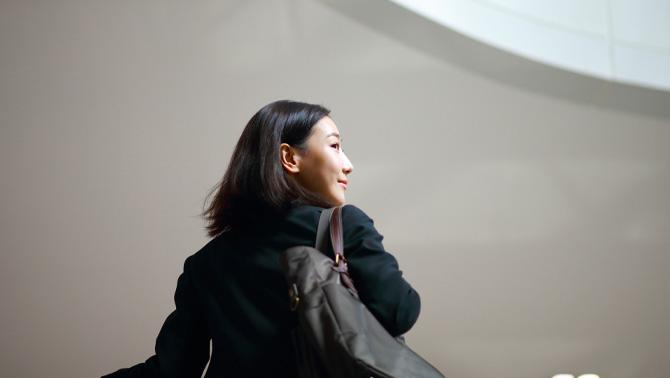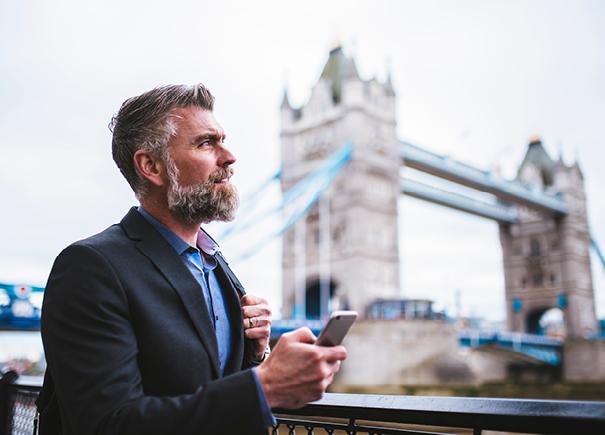Communication key for Gen Z generation travelling for business and ‘bleisure’

The continued popularity of the ‘bleisure’ trend within business travel and the ability to effectively communicate with the Gen Z generation have been highlighted as key areas importance at the Global Business Travel Association Convention in Georgia’s Atlanta.
During the packed-out session, it was identified that the Gen Z generation does take greater risks and are less afraid of things that previous generations have deemed as “dangerous”.
Emese Graham, Diversity, Equity and Inclusion Manager – Flight Centre Travel Group, said it was vital for travel policy makers to remember the ‘DITTO’ system for the Gen Z generation when traveling.
“Gen Z’s in Australia have different considerations than previous generations with as many as 32 per cent of now identifying as LGBQT+, only 15 per cent believing they have “excellent” mental health, and the fact they’ve grown up around crises – meaning their travel behaviours are different,” Graham said.
“When looking at the Gen Z profile, you need to have diversity, individualism, teamwork, technology, and organisational support included within your travel policy.”
A poll in the session revealed that the top answer – with over half at 53 per cent – was wellness (including upgrades, bleisure, safety), leading the way when traveling for business and ‘bleisure’.
“If you’re in Atlanta for three days for GBTA, you’re likely to do something outside of what’s on your work schedule, and these things can create things to be aware of in terms of risks, security, safety,” said Tyler Hosford, Regional Security Manager, International SOS.
“If you think back to your first ever business trip, things have changed dramatically. Of course, you will want to tack on extra days where you can – but there are simple things to consider like, does your corporate travel insurance even cover this? The key is for your traveller to feel supported..

“The ‘bleisure’ travel trend and having this included in your travel policy can be used as an employee value proposition – why wouldn’t you want to carry on working for a company where you’re really supported to include leisure in your travel in a safe and supported way? It’s great for recruitment.”
How the ‘bleisure’ trend is impacting work across the generations:
According to Corporate Traveller’s survey of 1,001 Australians, Millennials and Gen X are more likely to take more annual leave if they travel for work with one-third (32%) indicating they would extend business travel as ‘bleisure‘ trips to save on costs.
With leave added to business travel or trips extended into weekends, businesses can expect well-rested (and more engaged) employees and fewer leave-related disruptions at other times of the year among those aged 25-54.
For Baby Boomers (over-55s), more than half of respondents (56%) said travel for work would not influence their annual leave habits.
Corporate Traveller Australian-based Global Managing Director Tom Walley said employers and employees alike stand to gain from work travel opportunities.
“For businesses, that means fewer disruptions related to annual leave and fewer staffing issues – not to mention the leads and relationships gained from the business trip itself. For most employees, it means new and exciting opportunities and savings on travel costs,” he said.
“Employees utilising their annual leave is in the best interest of employers – a well-rested workforce is going to be more healthy, productive and engaged.
“Keeping leave balances under a certain threshold also bodes well for the bottom line, particularly across smaller companies operating with small margins.”
Top ways to transform a travel program for the Gen Z generation:
Communication
- Streamline as much as possible. Minimise the number of necessary apps and logins
- When communicating, be clear, direct, and concise
- Lean heavily on push notifications and text updates and implement technology that provides contextual safety and risk information
- Provide comprehensive safety and risk information up front so Gen Z can assess their risk before traveling. Make sure there are safe and obvious follow-up channels.
Policy Adjustments
- Negotiate additional benefits into your contracts that would be more amenable to Gen Z, such as Wi-Fi, lounge discounts, and meal packages
- Do a comprehensive risk assessment of your travel locations and make this information available to your travellers
- Ensure risk management strategy includes a clear social media policy
- Incorporate DEI into your travel program/organisation: Try starting with gender/sexuality, disability and neurodiversity, and race/ethnicity.



